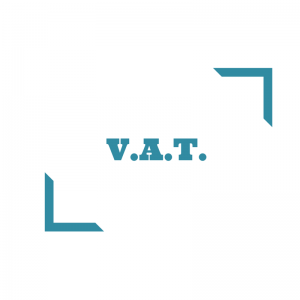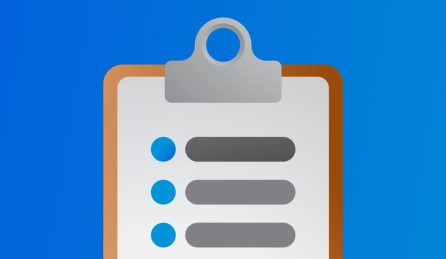Do you supply telecoms services or broadcasting & electronic services to consumers in the EU? That definition includes the supply of electronic books, apps, downloads of videos (including streaming services), things like sat-nav maps, downloadable games, software via download & all cloud storage services. If you do, new VAT laws come into force from 1st January 2015 that effect stringent rules and strict penalties that means you may need to be taking action now.
 The basic premise of the new law is that VAT is now to be charged for such services according to the rate applicable in the EU country the customer is located. As Keng Yip Cheong, Corporate Tax Manager at Ward Williams Chartered Accountants points out:
The basic premise of the new law is that VAT is now to be charged for such services according to the rate applicable in the EU country the customer is located. As Keng Yip Cheong, Corporate Tax Manager at Ward Williams Chartered Accountants points out:
“The change affects only those offering digital services and basically those services that don’t require human intervention. Live webinars for example are excluded because you have a human having to do the presentation, but what is covered are those services where there is streaming of a video [so a recorded webinar].”
If you are simply offering those services to other businesses however, the new law won’t apply, it is only applicable to sales to consumers; “As in private consumers, individuals.” As Cheong points out, “If you are talking about B2B then the old rules still apply [VAT charged at the rate applicable in the county of the selling business] what they are talking about here is B2C.”
The new law brings the VAT rules up to date for modern commercial practices: “VAT rules don’t change that much other than the odd tweak. This is just a catch-up really in terms of the digital marketplace.” Explains Cheong. The law also unifies procedure across the EU – although not VAT levels which still vary between states (VAT rates across the EU average at 21.54% but range from 15-27%). “The UK has a very high [VAT] threshold, compared other countries in the EU.” adds Cheong, explaining that many businesses in the UK don’t currently fall within the VAT regime.
The biggest impact for small businesses in the UK could be due to that high VAT threshold which has previously allowed them to be exempt from VAT registration and all the administration that requires. However, businesses won’t be required to register for VAT in each and every state they do business in as Cheong observes:
“As a small business, if you meet the conditions of this new law and you are selling to a consumer in Germany, but you don’t have a VAT registration at the moment – say you are under threshold in the UK and because of the old rules you have also never registered for VAT in Germany – you still don’t have to register in Germany. You can use something called a VATMOSS (A VAT Mini One-Stop Shop) https://www.gov.uk/register-and-use-the-vat-mini-one-stop-shop”
 Unfortunately, whilst you won’t have to register in other individual states if you use a VATMOSS, you will lose your exemption from registration in the UK to use it:
Unfortunately, whilst you won’t have to register in other individual states if you use a VATMOSS, you will lose your exemption from registration in the UK to use it:
“For those not yet registered in the UK, they would now have to do it, to make use of VATMOSS. Meaning they will have to charge VAT.” explains Cheong, “The VAT MOSS would take care of everything for you. You basically do all your returns in the UK and HMRC will take care of the rest but first and foremost you need to set up VAT registration in the UK and then it’s a form-filling exercise via HMRC once you get your VAT number.”
If registering for VAT and using a VATMOSS sounds all too much for your small operation there are other options you could consider.
As Cheong points out, the emphasis on dealing with the VAT is on the business selling to the consumer, so by using a third party sales agent, you can place the burden on them to deal with it:
“If for example you are selling via Amazon, then Amazon would be the one responsible for dealing with the VAT.” confirms Cheong.
If you are selling direct via your own site and your overseas sales are minimal, you could also simply restrict certain sales into other EU countries and avoid the VAT changes altogether, but monitoring the same could be difficult and could lose you sales.
Essential information collection
Whatever your choice, if the changes are likely to affect your business you need to consider making changes to your data collection and order processing procedure. For all sales you will need to be sure of the consumer’s actual location, which is not as simple with electronic products as it is with physical ones. The law requires at least 2 pieces of information to be collected to validate that consumer’s location and that information must then be used to accurately bill – according to the VAT level in that said country. All a little complicated for however large or small your operation.
A positive note
One potential positive for the UK as a whole from the VAT law change is that VAT now collected from UK customers will go to the UK Treasury. At present many companies in the electronic services industry technically operate in other EU countries such as Luxembourg and Ireland to take advantage of their lower tax conditions. This change alone is estimated could raise an additional £300 million per annum for the UK Government.
For more information check out these links:
HMRC VAT @gov.uk https://www.gov.uk/business-tax/vat
Webinar from Institute of Chartered Accountants in England and Wales – http://www.icaew.com/en/technical/tax/tax-faculty/tax-webinars/vat-is-changing-in-2015



